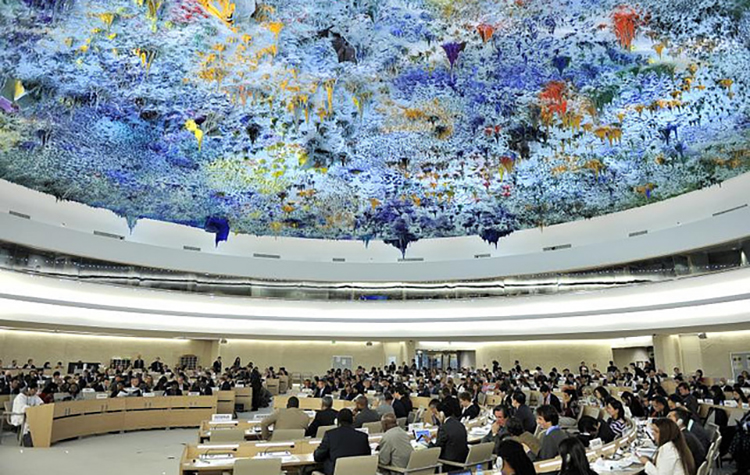29th Regular Session of the UN Human Rights Council
Item 3: Interactive Dialogue with the UN Special Rapporteur on the Rights to Freedom of Peaceful Assembly and of Association, Maina Kiai, and the UN Special Rapporteur on the Promotion and Protection of the Right to Freedom of Opinion and Expression, David Kaye
Oral Statement Delivered by Adam Adli
On behalf of the Asian Forum for Human Rights and Development (FORUM-ASIA)
Wednesday, 17 June 2015
Thank you, Mr. President. FORUM-ASIA welcomes the reports of the two Special Rapporteurs. Most countries in Asia rely on a development trajectory that depends on methods of resource extraction and exploitation associated with various forms human rights violations by states and corporations, often without redress. Asian cases highlighted in the current report of the Special Rapporteur on the rights to freedom of peaceful assembly and of association (A/HRC/29/25) are just the tip of the iceberg. Recently, in Burma/Myanmar, protesters and human rights defenders continue to be jailed for organising protests against large-scale mining projects. In April, prominent WHRD Naw Ohn Hla and fellow protesters were sentenced to four years and four months for organising a protest related to land acquired for the Letpadaung copper mine project.[1] In Thailand, communities in the northeastern province of Khon Kaen have been intimidated by military and police officer who monitor their meetings on natural resource exploitation.[2] We urge all governments to ensure that their legal framework in relation to resource extraction and exploitation, as well as the right to freedom of peaceful assembly and association, are in full compliance with international human rights standards. These legal frameworks must also extend to the private sector, which should at all times respect international human rights standards, at the minimum.
Mr. President, FORUM-ASIA further welcomes the report of the Special Rapporteur on the promotion and protection of the right to freedom of opinion and expression (A/HRC/29/32). We support the Special Rapporteur’s call for the revision or establishment of national laws to promote and protect the rights to privacy and freedom of expression, and stress that any restrictions must meet the requirements of legality, necessity, proportionality and legitimacy in objective. We note with particular concern the risks faced by human rights defenders in Asia, including threats, harassment, intimidation and criminalisation, as a result of digital surveillance deployed by governments in the region. We thus stress the critical importance of online security to the work of human rights defenders, and call on the Special Rapporteur to work closely with the Special Rapporteur on the situation of human rights defenders in this regard.
Lastly, we emphasise the central role of national human rights institutions (NHRIs) in addressing violations cited by both Special Rapporteurs. In particular, as both Special Rapporteurs have highlighted the role of the private sector, we call on NHRIs to effectively implement the Edinburgh Declaration and to promote and enforce extraterritorial obligations of governments, including by monitoring and investigating violations by corporations registered under domestic jurisdictions with operations overseas.[3]
Thank you, Mr. President.
[1] Myanmar gov’t increases activists’ sentences, VideoNews.us, 16 May 2015.
[2] Thailand: Seminar on environmental impact of disputed oil field monitored by military and police, AHRD, 8 May 2015.
[3] FORUM-ASIA (2013) Corporate Accountability in ASEAN: A Human Rights-Based Approach.




